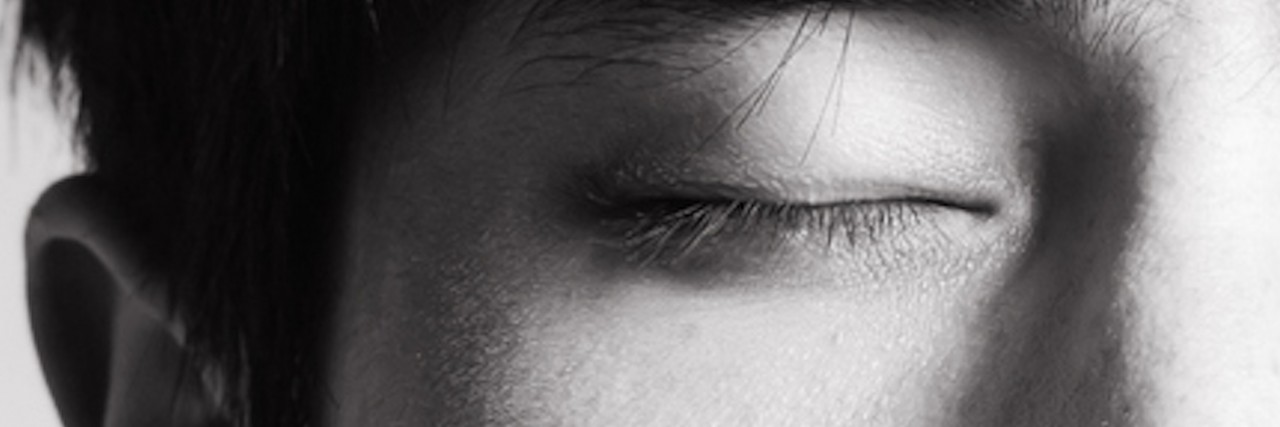I have photophobia. That doesn’t mean I am afraid of light — it means my vision is abnormally sensitive to it. Due to an undiagnosed neurological condition, photophobia is my constant reality. The challenges of living with this misnomer of a symptom feels as if one definition of photophobia induces the other.
What does it mean to me to be photophobic?
On good days, my illness is invisible to most, and by all outward appearances, I live a “normal” life. I am able to drive, have a family, work, and even socialize with friends. All has been good, at least as far as anyone can tell.
The good days have recently become scarce. By some definition, I can see, but the discomfort becomes exponentially more challenging as the light levels increases. Levels above dim hurt. Typical office lights make it so I can’t see, but with effort, I can see my feet. Going outside without dark glasses and a hat is unthinkable. Even with protection, sight outdoors is elusive.
I am not experiencing pain, per se, but extreme intensity. The best description I have come up with that most people can relate to is: imagine you wake at 2 a.m. on a moonless night and, as you look around your room, someone turns on the light. That explosion of whiteness that a person with normal vision experiences at that moment is what I experience with slight changes in light at all times. For significant changes in light, my brain implodes, and my universe becomes a void for a couple of minutes.
Closing one’s eyes in response to bright light is a common reaction. My response is proportional to my sensitivity to light. So much so that I experience spasms in my face that make it difficult to open my eyes for minutes at a time. Occasionally, my spasms are equivalent to a charley horse in the face. Those spasms hurt.
I no longer take some things for granted. For example, walking in front of a window is something I think twice about. Sunlight from these windows become a physical barrier. Crossing the swath of light unaided feels like I’m walking through the void of a nuclear explosion. If I am hit unexpectedly by sunlight, it aggressively repels me, shoves me into people, walls, or anything in the way.
At nights, traffic lights slap me in the face when they change from red to green. Headlights make it so I can’t see, and high beams turn me into a swearing-quivering blob of flesh. And the worse part of modern night-driving for me: the flash from red-light cameras is a physical assault on an innocent bystander.
The one question I no longer know how to answer is: “How are you doing?” I almost always answer “Fine, ” but I’m lying. I’m never fine anymore. The question should be, “How much extra effort does it require for you to appear fine today?”
There have been no ER visits, hospitalizations, medicines, nor constant medical attention to cope with the light sensitivity. I’ve just had a stream of doctor visits and medical tests in the hopes that someone could provide a diagnosis or therapy for the symptoms. No luck yet, but I’m still hopeful.
If I let it, light could be my prison. It is my enemy, but it is also my friend. Light allows me to see and be with my loved ones, contribute to society and to participate in life. Even though light can affect me so much, it is something I willing subject myself to, albeit with reservations at times.
Having an undiagnosed illness effectively means I’m the only one with it. I’m sharing my story not in the hopes to discover others with my condition. Instead, if there are others with my condition, they will know they are not alone.
We want to hear your story. Become a Mighty contributor here.
Image via Thinkstock Images

